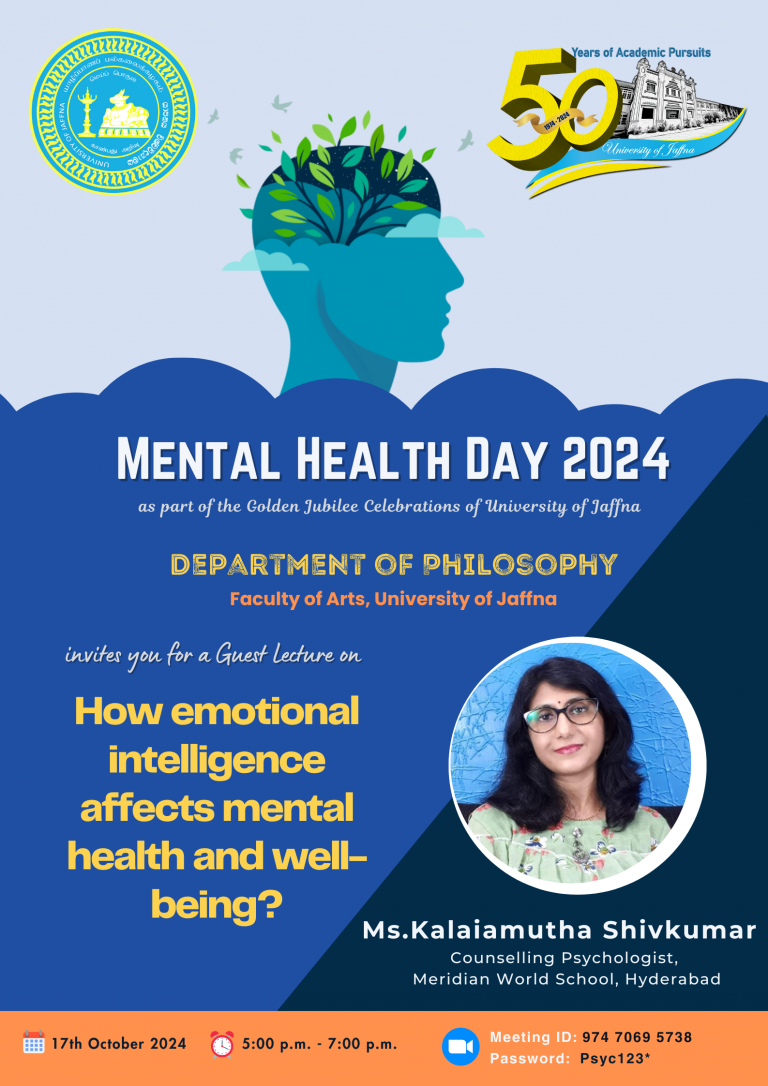Guest Lecture: "How Emotional Intelligence Affects Mental Health and Well-Being"
As part of the Golden Jubilee celebrations of the University of Jaffna, the Department of Philosophy organized a virtual guest lecture on October 17, 2024. The topic of the lecture, “How Emotional Intelligence Affects Mental Health and Well-Being,” was presented by Ms. Kailaiamutha Shivakumar, a renowned Counselling Psychologist from Meridian School, Hyderabad, India. The event, conducted via Zoom, attracted over 75 participants, including students, faculty members, and counsellors.
The lecture, held from 5:00 p.m. to 7:30 p.m., provided a comprehensive understanding of the role emotional intelligence plays in mental health and overall well-being. Ms. Kailaiamutha, known for her expertise in the field, began by explaining the core components of emotional intelligence—self-awareness, self-regulation, motivation, empathy, and social skills—and how each of these factors contributes to emotional stability and mental health.
In her discussion, Ms. Kailaiamutha emphasized the importance of recognizing and understanding one’s emotions in order to manage them effectively. She provided practical examples of how emotional intelligence helps individuals navigate emotionally charged situations, whether in personal or professional contexts. By cultivating emotional intelligence, she explained, individuals can reduce stress, improve relationships, and enhance their overall mental well-being.
The speaker also highlighted the significance of emotional intelligence in modern work environments, where stress and mental health challenges are increasingly prevalent. She discussed how developing emotional intelligence skills can lead to better decision-making, conflict resolution, and team collaboration.
The interactive nature of the lecture allowed participants to engage in a lively Q&A session, where Ms. Kailaiamutha addressed questions on how emotional intelligence can be nurtured and applied in day-to-day life. Her insights provided the participants with practical strategies to become more emotionally intelligent and to use these skills to improve their mental health.
Overall, the guest lecture offered a clear and valuable perspective on the connection between emotional intelligence and mental well-being. The event successfully engaged the virtual audience and left a lasting impact on the participants, encouraging them to reflect on their emotional responses and develop healthier ways to manage emotions.
The Department of Philosophy’s initiative to include this topic as part of the Golden Jubilee events was well-received, with participants expressing appreciation for the relevance and depth of the content shared during the session.

